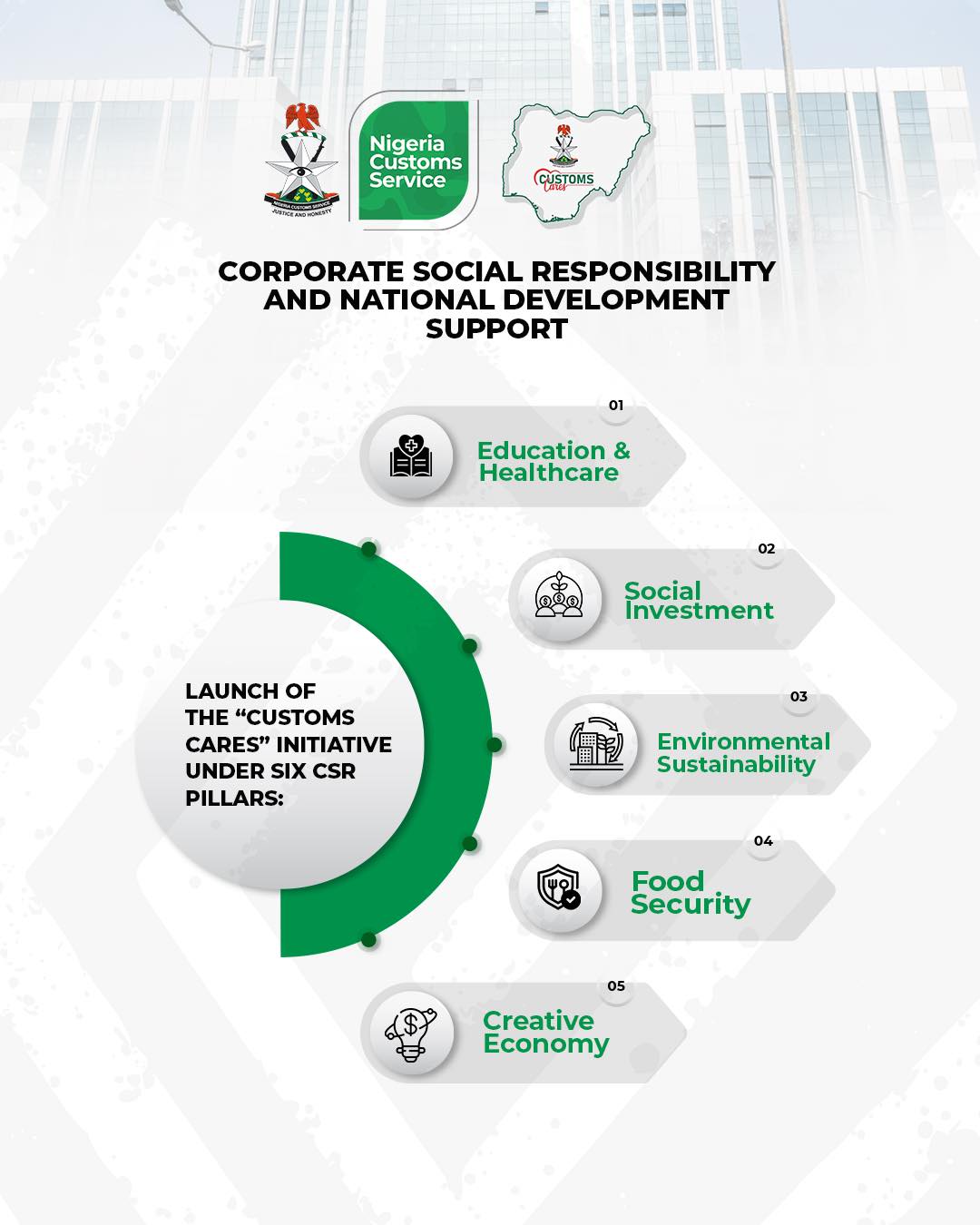In a strategic move to align its operations with broader developmental goals, the Nigeria Customs Service (NCS) has officially launched a far-reaching corporate social responsibility programme known as ‘Customs Cares’. This initiative is structured around six key pillars aimed at improving the quality of life across Nigerian communities and contributing meaningfully to national progress.
The six focal areas under the ‘Customs Cares’ programme include Education, Healthcare, Social Investment, Environmental Sustainability, Food Security, and the Creative Economy. According to the Service, each of these pillars has been carefully designed to reflect pressing societal needs while also promoting long-term, inclusive development across the federation.
The initiative was unveiled as part of a renewed commitment by the NCS leadership to reposition the agency not just as a revenue-generating institution, but also as a stakeholder in the humanitarian and developmental landscape of the country. With Nigeria grappling with issues such as youth unemployment, poor access to quality healthcare, environmental degradation, and food insecurity, the Customs Service believes it has a role to play beyond its traditional mandate of border security and trade facilitation.
Speaking at the unveiling, top officials of the Nigeria Customs Service emphasized that ‘Customs Cares’ is a proactive step towards institutionalizing the agency’s humanitarian engagements. The programme is expected to foster stronger ties between the NCS and the communities it serves, while also helping to build trust and social cohesion in areas where the Service operates.
The Education and Healthcare component will focus on providing learning materials, rehabilitating schools, and supporting medical outreach programmes, especially in underserved rural areas. Social Investment under the scheme will include skills acquisition training, youth empowerment projects, and support for vulnerable groups. Environmental Sustainability will target waste management, reforestation, and eco-friendly practices in Customs operations, while the Food Security element is set to involve agricultural support initiatives and community feeding programmes. In addition, the Creative Economy arm of the project will provide platforms and funding for young talents in arts, film, fashion, and entertainment to thrive.
By embedding social impact into its operational framework, the Nigeria Customs Service aims to contribute more directly to achieving the United Nations Sustainable Development Goals (SDGs) and the Federal Government’s Renewed Hope Agenda.
‘Customs Cares’ signals a shift in the way public institutions engage with society, prioritizing not only enforcement and revenue but also social responsibility. As the programme begins rollout across various Customs zones, Nigerians are hopeful that such initiatives will bridge development gaps and offer tangible benefits to communities long neglected in national planning.







